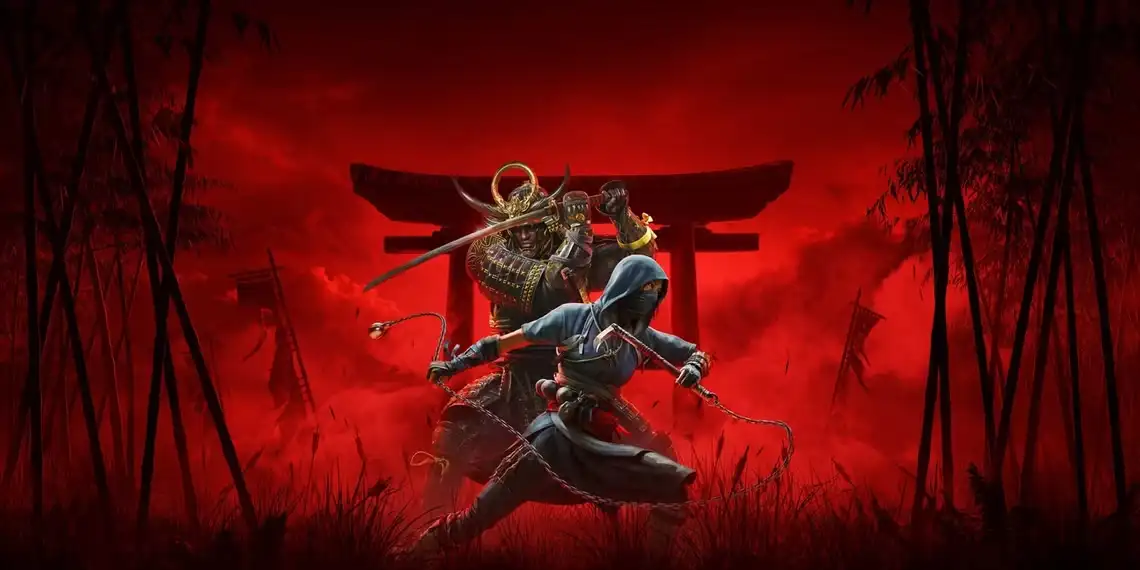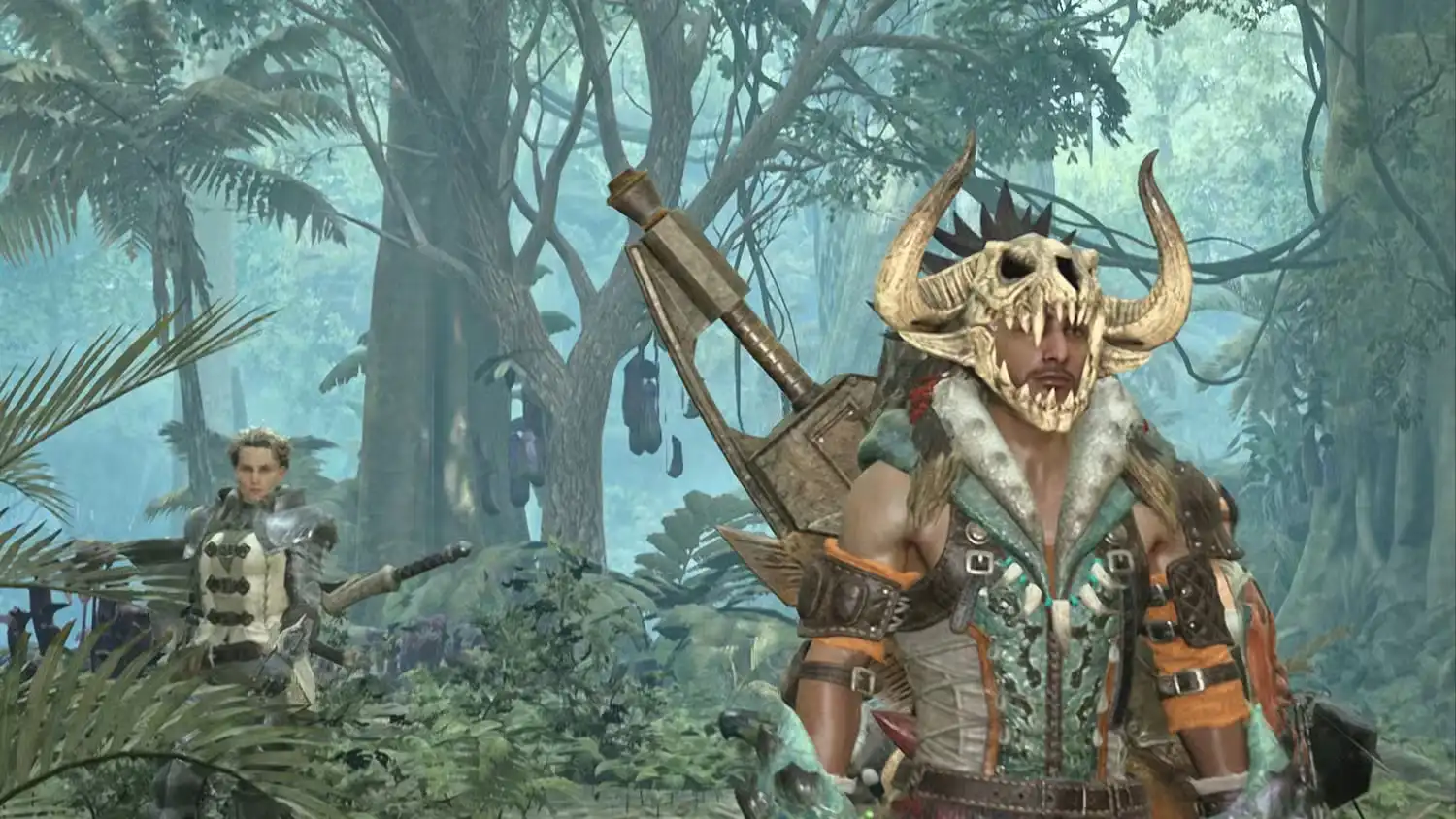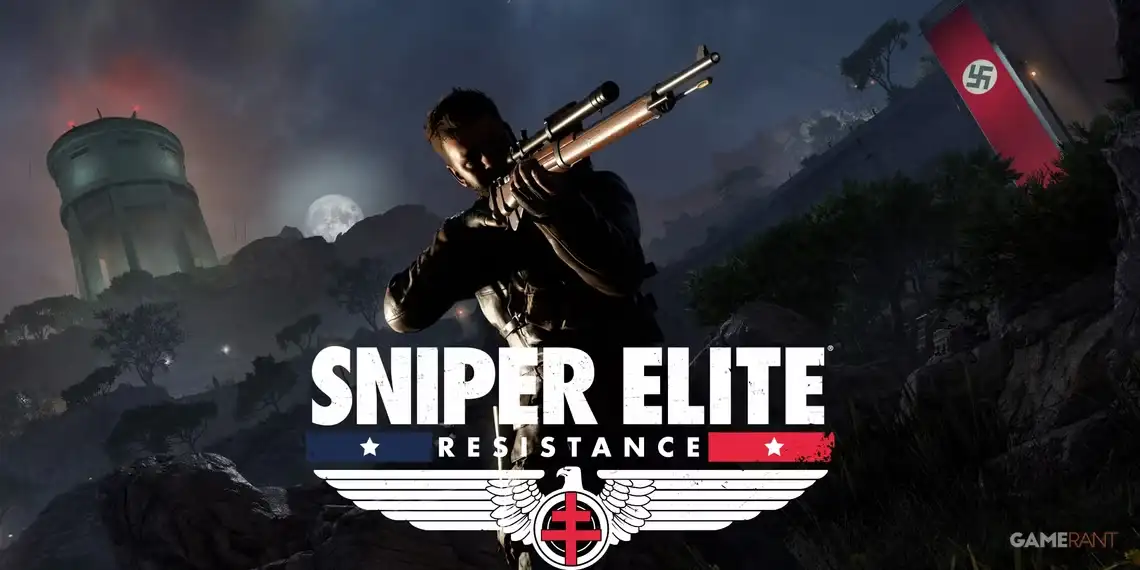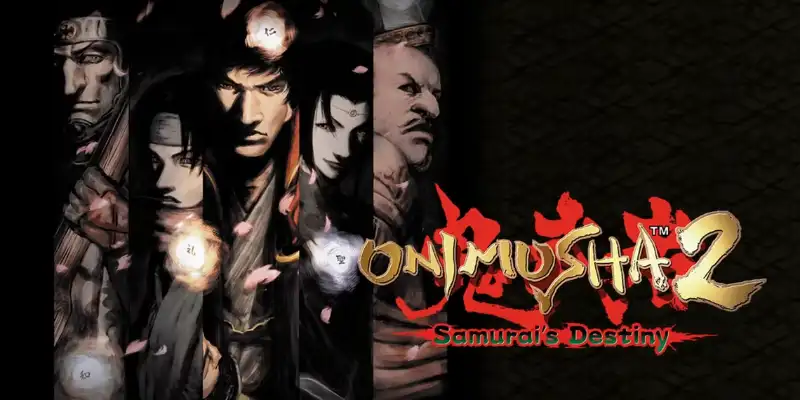With the release of Assassin’s Creed Shadows, Ubisoft finds itself at a turning point for one of its most iconic franchises. After more than a decade of experimentation from stealth-focused entries to sprawling RPGs the series arrives at feudal Japan with renewed purpose and precision. While the anticipation surrounding the setting was high, the real question lingered: could Shadows reinvigorate a formula many felt had grown stale? The answer is a resounding yes. Not only does Shadows meet expectations it confidently redefines what a modern Assassin’s Creed game can be.
A Storied Legacy with a New Chapter
Since its debut in 2007, the Assassin’s Creed series has undergone dramatic shifts in style and scope. The franchise found new momentum with Origins in 2017, adopting a robust RPG format that expanded the possibilities of its historical sandboxes. Yet with each release since, the formula showed increasing signs of fatigue. Shadows arrives as a response to this a game that understands both where the series has come from and where it needs to go.
Historical Depth and Cultural Fidelity
Set during the Sengoku period a violent and transformative era in 16th-century Japan Assassin’s Creed Shadows immerses players in a nation on the brink of unification. Against this backdrop, players embody two heroes: Naoe, a shinobi trained in stealth and subterfuge, and Yasuke, the legendary African samurai and vassal of Oda Nobunaga. Their paths, initially opposed, eventually converge in a shared battle against the forces seeking to manipulate Japan’s future from the shadows.
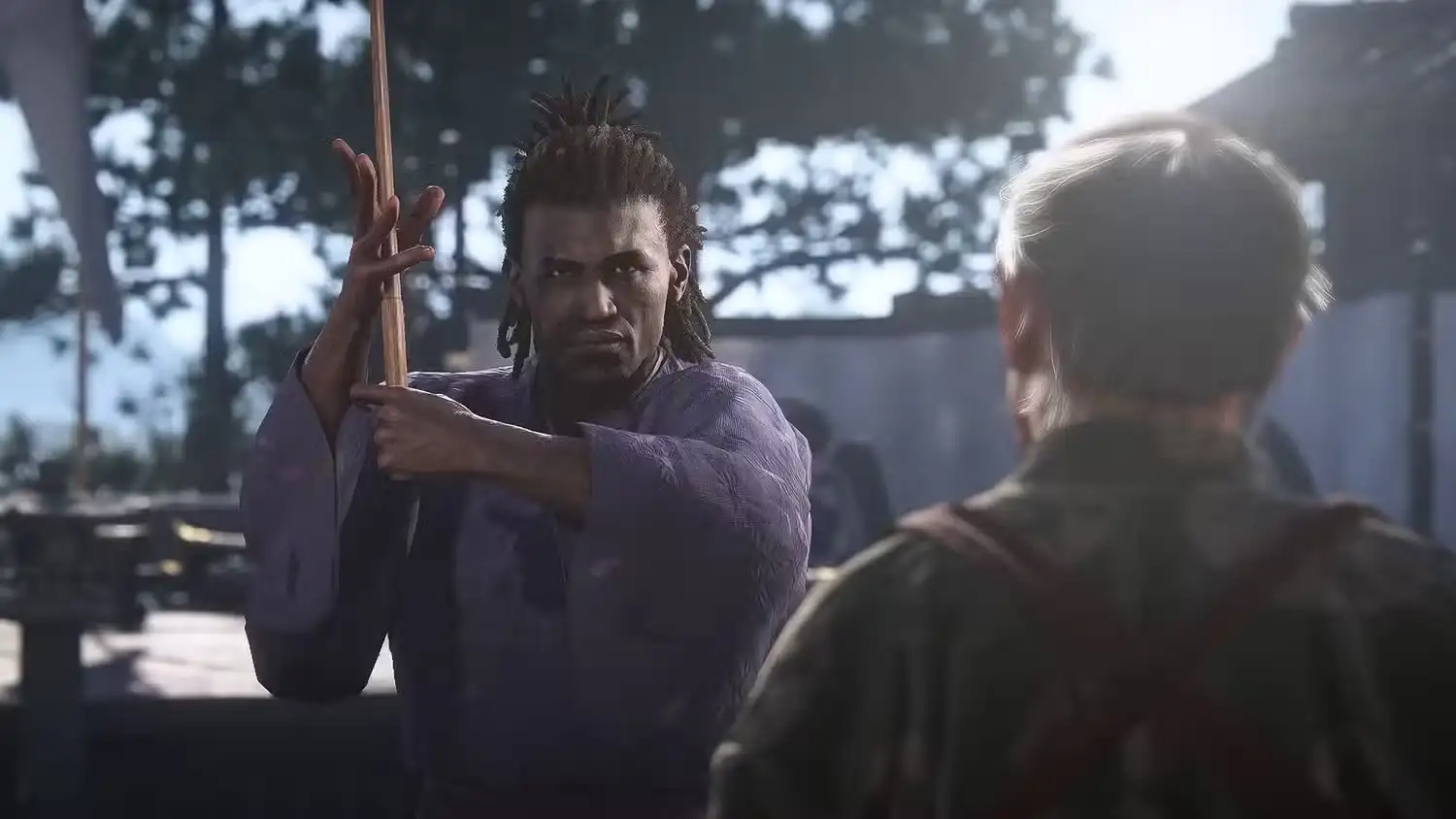
Dual Protagonists With Depth and Purpose
Ubisoft’s implementation of two main characters isn’t a novelty this time it’s a masterstroke. Unlike earlier entries where dual protagonists were more cosmetic or optional, Naoe and Yasuke each serve a narrative and mechanical purpose, offering distinct playstyles and perspectives that enrich the overall experience.
Naoe the Shinobi, Yasuke the Samurai
- Naoe specializes in stealth and agility, utilizing smoke bombs, kunai, shuriken, and silent takedowns to move undetected through environments. Her path is ideal for fans of classic Assassin’s Creed gameplay, emphasizing subversion and strategy over brute force.
- Yasuke contrasts her in every way a powerful warrior whose combat is deliberate and overwhelming. Armed with heavy weaponry and strong armor, Yasuke thrives in direct conflict, offering a visceral experience that turns battles into cinematic duels.
The game cleverly designs missions and challenges that demand players rotate between both characters. Whether storming a castle as Yasuke or infiltrating a noble’s estate as Naoe, the gameplay constantly encourages experimentation and adaptation.
Exploring Sengoku Japan A Living, Breathing World
The map in Assassin’s Creed Shadows might not be the largest in the franchise, but it is arguably the most immersive. From the misty foothills of Kyoto to the sun-drenched coastlines of the Seto Inland Sea, the game’s environments blend natural beauty with political turmoil. Ubisoft’s commitment to historical accuracy is evident from castle architecture to cultural rituals creating a sense of place that rivals even Ghost of Tsushima.
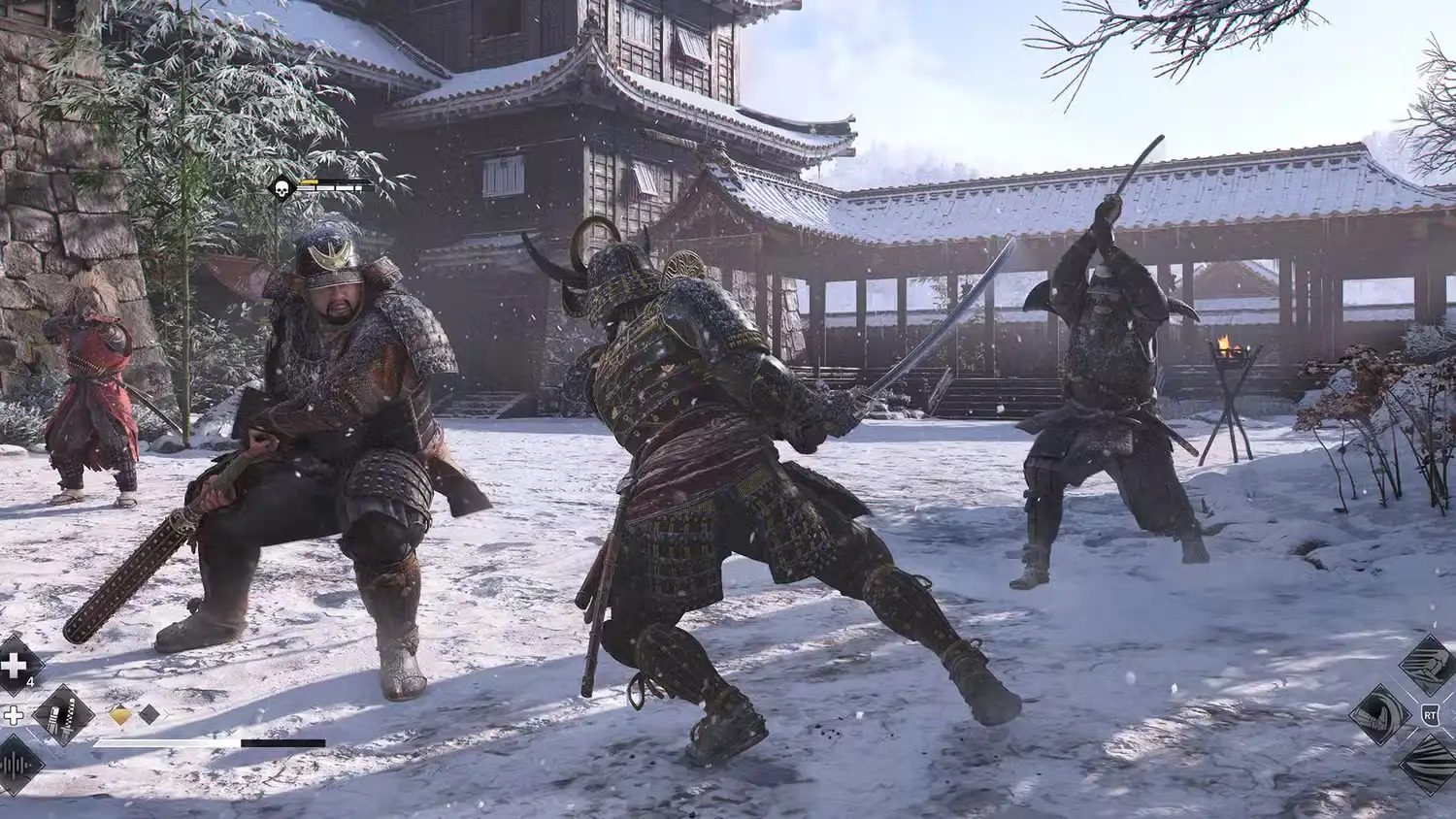
A Rich Tapestry of Missions and Side Content
Beyond the main storyline, Shadows offers an abundance of worthwhile content:
- Scout Network System: Unlock intel and track targets through a base-building mechanic centered on your hideout.
- Kofun Tombs: Ancient burial sites hiding powerful artifacts and Brotherhood lore.
- Samurai Duels & Bandit Hunts: Combat challenges that test player mastery and yield high-tier rewards.
- Artistic and Spiritual Quests: Activities like sumi-e painting and kuji-kiri meditation offer peaceful reprieves from combat.
While the map is dotted with impressive locations, some areas particularly castles begin to feel repetitive over time. And though visually stunning, the game sometimes funnels players into well-defined paths, reducing the sense of discovery one might expect in a vast open world.
Combat and Stealth Two Sides of the Same Blade
Shadows builds upon the modern AC combat formula with satisfying refinements. Whether you’re parrying with Yasuke’s katana or chaining stealth kills with Naoe, the game maintains a deliberate pace that rewards timing, observation, and skill. Color-coded attack indicators (white, blue, and red) add clarity and tension to every encounter.
Parry, Dodge, Strike
- Parry Timing: Mastering counterattacks opens enemies up for brutal finishers.
- Elemental Effects: Naoe’s weapons apply bleed, poison, or fire perfect for wearing down stronger foes.
- Armor and Gear: Yasuke’s loadouts allow for unique perks, such as deflecting previously unblockable attacks.
This dual system stealth and strength feels balanced and responsive. Players can switch styles based on mood, mission, or necessity, keeping gameplay fresh well into the final hours.
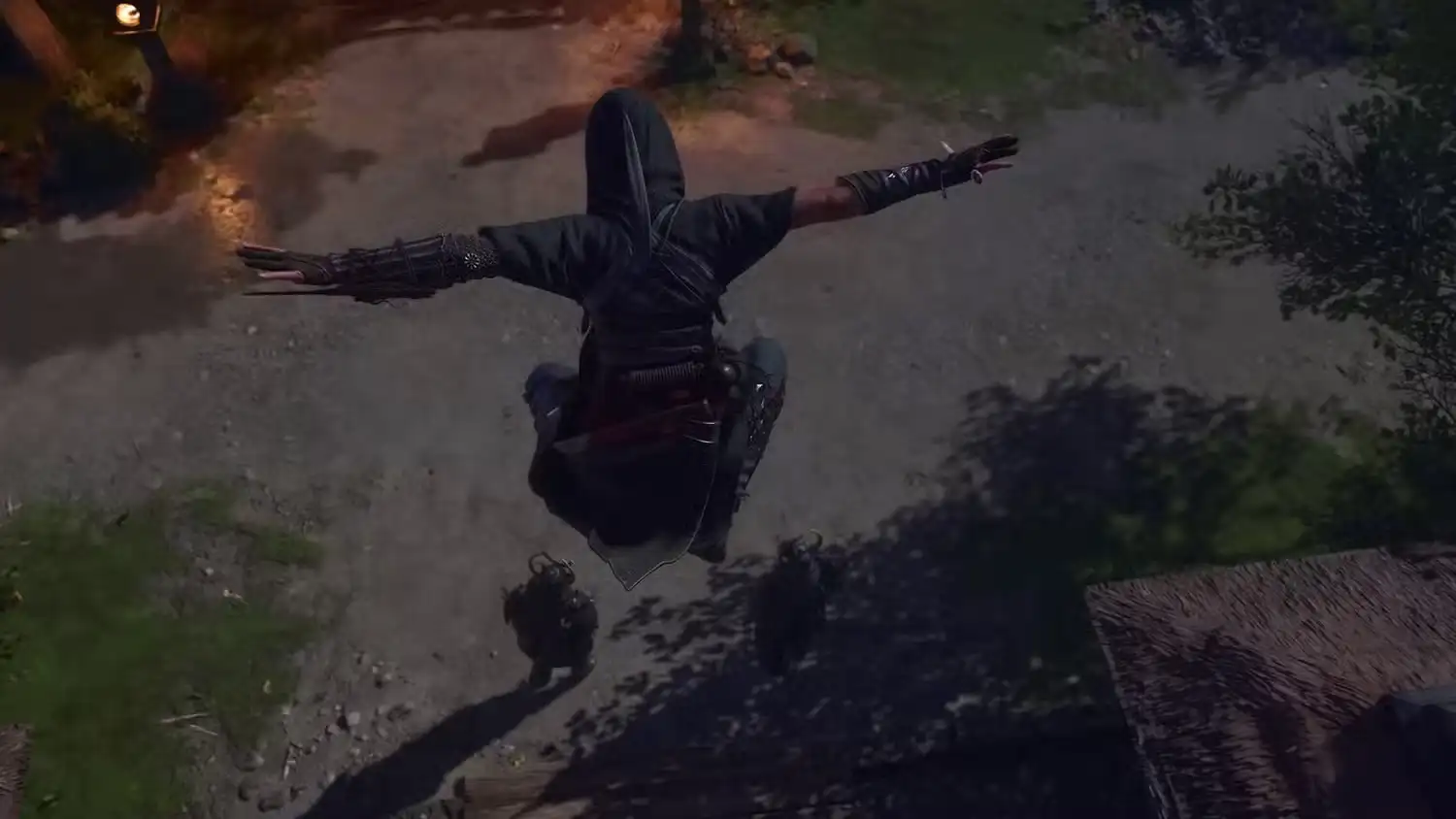
A Campaign That Respects Your Time
Clocking in around 40-50 hours, Assassin’s Creed Shadows offers a much leaner experience than its predecessors. Where Valhalla sometimes dragged, Shadows thrives on pacing. Side quests enhance rather than distract from the central narrative, and the progression system naturally encourages players to explore rather than grind.
A Story Worth Following
Far from just another revenge tale, Shadows delivers a gripping narrative that blends personal loss, political upheaval, and philosophical conflict. Yasuke and Naoe do not always agree, and their clashing ideologies rooted in their backgrounds as warrior and assassin give the plot weight and momentum. The result is a dynamic and emotionally satisfying journey that doesn’t overstay its welcome.
Assassin’s Creed Shadows doesn’t just mark a return to form it might represent the series at its most refined. With two compelling leads, an evocative setting, and gameplay that strikes a balance between stealth, action, and strategy, it delivers on nearly every front. Even with minor shortcomings in map design and occasional repetition, the game manages to feel fresh, grounded, and purposeful throughout.
Whether you’re a long-time fan or a lapsed player burned out by endless content bloat, Shadows is the entry that proves the Assassin’s Creed series still has stories worth telling and battles worth fighting. Ubisoft’s journey through feudal Japan may just be its best historical leap yet.
